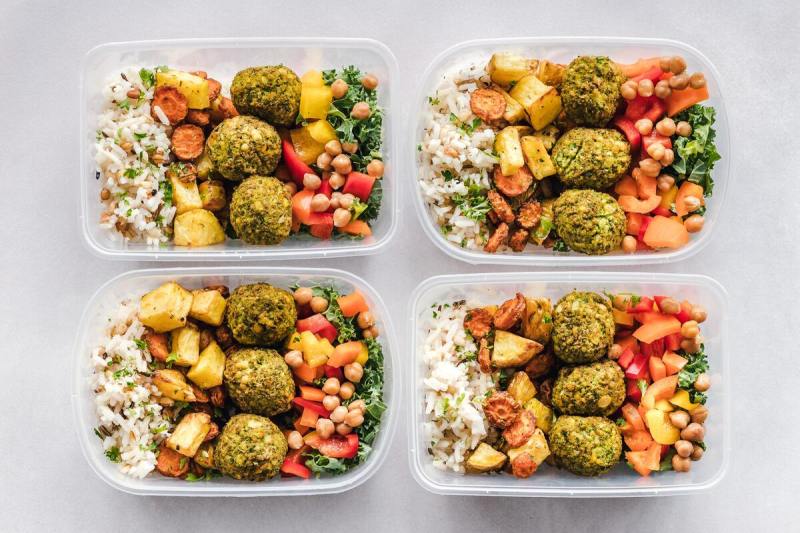Are you looking to lose weight and improve your health? There are many diets out there claiming they can do just that for you. However, numerous advertised eating methods aren’t actually the best for you, as they can be too restrictive and lead to deficiencies in certain nutrients. This is where the Mayo Clinic diet comes in.
The Mayo Clinic diet is about portion control and eating balanced meals full of nutrient-rich foods. It’s also not just a quick fix — you can follow this diet long term to reap the most benefits. If this sounds like it might be a fit for you, keep reading to learn exactly how to follow this way of eating.
What is the Mayo Clinic diet?

The Mayo Clinic diet is a structured eating plan developed by the medical professionals at the Mayo Clinic. Designed with the overarching goal of promoting lifelong healthy habits, it aims at achieving and maintaining a healthy weight over time rather than quick, unsustainable weight loss. It encourages an understanding of serving sizes and fosters a mindful approach to eating, making healthier choices a natural preference.
What are the benefits of the Mayo Clinic diet?

Promotes heart health
A core principle of the Mayo Clinic diet is the emphasis on fruits, vegetables, and whole grains. These foods are high in dietary fiber, which helps lower the risk of heart disease by managing cholesterol levels and promoting overall heart health.
Supports weight loss
The Mayo Clinic diet can aid weight loss as it encourages portion-controlled, balanced eating. It is based on the food pyramid, which prioritizes fruits, vegetables, and whole grains over fats and sugars, aiding in the creation of a calorie deficit without compromising on essential nutrients.
Improves digestive health
With its focus on whole foods and dietary fiber, the Mayo Clinic diet contributes to a healthy and efficient digestive system. Regular and proper digestion can help you avoid problems like constipation, bloating, and irritable bowel syndrome. Check out which foods have the best fiber content.
Encourages a healthy lifestyle
The diet goes beyond the confines of mere weight loss. It introduces and reinforces habits that can contribute to a healthier lifestyle over the long term. This includes recommendations for regular physical activity and mindful eating.
What can you eat on this diet?

In line with the Mayo Clinic diet, a well-balanced meal should include a diverse range of nutritious foods like the following:
- Various fruits and vegetables, which should form the bulk of the diet.
- Whole grains, such as oatmeal, brown rice, and whole wheat bread.
- Lean proteins, including poultry, fish, beans, and eggs.
- Healthy fats like those found in avocados, nuts, and seeds.
- Dairy products, preferably low-fat or non-fat, in moderation.
What foods are restricted on this diet?

The Mayo Clinic diet restricts foods that are high in saturated fats and refined sugars. These foods often lead to weight gain and can cause health complications. Some of the restricted foods include the following:
- Fast food items are typically high in unhealthy fats and sodium.
- Sweets and desserts, especially those with high levels of added sugars.
- Processed foods usually contain high levels of preservatives, sodium, and unhealthy fats.
- Sodas and other sweetened beverages contribute to a high-calorie intake without any nutritional benefits.
Are there any possible adverse effects?

While the Mayo Clinic diet is generally considered safe and healthy, there can be some challenges.
May lead to nutrient deficiencies
If not properly followed, some people may not get enough of certain nutrients, particularly if they are already accustomed to a diet high in processed foods and need to make significant dietary changes.
Requires significant lifestyle changes
The diet requires substantial adjustments to daily eating habits. The first couple of weeks, known as the ‘Lose It!’ phase, can be particularly challenging for some individuals.
Can result in a weight loss plateau
After the initial phase of weight loss, some individuals might experience a plateau. This can be discouraging but is generally temporary as the body adjusts to new eating habits.
Example meal plan

Here’s a sample daily meal plan under the Mayo Clinic diet:
- Breakfast: Start your day with a bowl of oatmeal, topped with fresh fruits like berries and a sprinkle of nuts for additional healthy fats.
- Lunch: For lunch, enjoy a grilled chicken salad with a variety of colorful vegetables and a dressing made from olive oil and lemon juice.
- Snack: In between meals, you can have a piece of fruit or a small handful of mixed nuts to keep hunger at bay.
- Dinner: Finish your day with a healthy dinner of baked salmon served with a side of quinoa and steamed broccoli.
The Mayo Clinic Diet, created by health experts at the renowned Mayo Clinic, is a balanced and practical approach to losing weight and achieving a healthier lifestyle. With a focus on long-term changes, it encourages smarter food choices, understanding portion sizes, and incorporating regular exercise. It’s not just about losing weight quickly but about maintaining a healthier lifestyle for years to come.
Frequently asked questions

Do you have to count calories on the Mayo Clinic diet?
No, you do not have to count calories. Because the Mayo Clinic diet focuses on whole foods, it cuts out the artificial and processed foods that tend to be higher in calories and that contribute to weight gain. Many people struggle with tracking their intake daily, so this diet method can be a great alternative.
How long are you supposed to follow the Mayo Clinic diet?
There is no official timeline with the Mayo Clinic diet, but it is recommended that you adhere to its guidelines for at least 12 weeks before determining it is not for you. However, the hope is that you will follow it long term, as this way of eating isn’t nearly as restrictive as many other diets, like the keto diet or carnivore diet.




